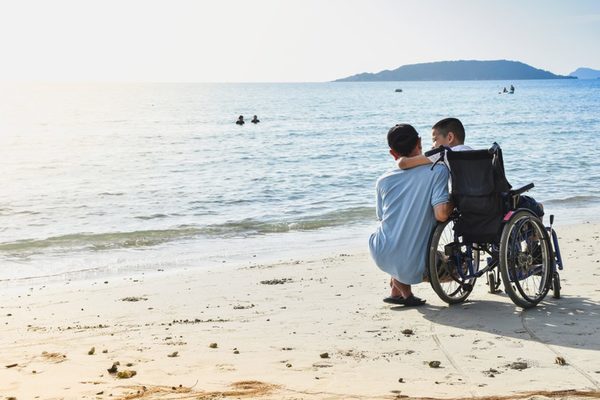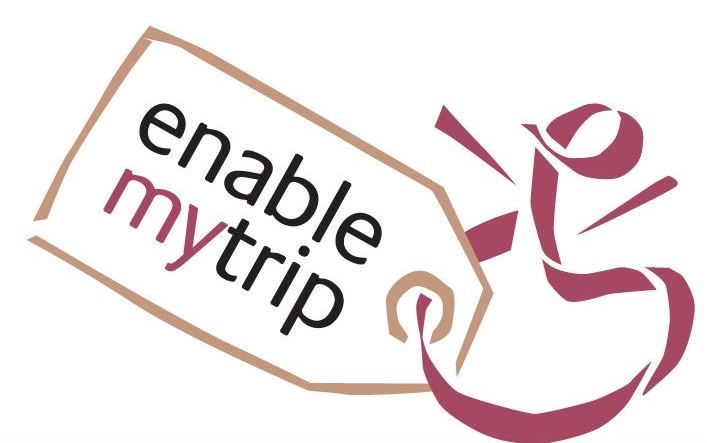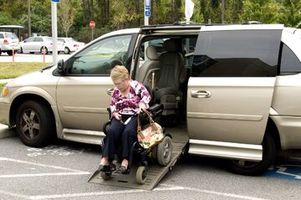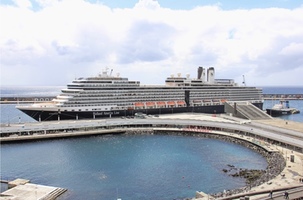
A Comprehensive Guide to Travelling Abroad with a Disabled Child

A Comprehensive Guide to Travelling Abroad with a Disabled Child
There’s nothing quite like having a family holiday to look forward to. However in a post-pandemic world, and with the added challenges that Brexit brings, planning ahead has never been more important. This is especially true if you are one of the many families that travels with special needs children.
The charity Scope estimate that 9% of all children in the UK live with a disability. For these families, taking a holiday abroad comes with a number of added challenges. But, with careful planning, it’s still possible to have the family holiday you’ve been dreaming of, and deserve.
In this feature, we’re going to offer a step-by-step guide for travelling abroad with a disabled child. We’ll cover all the important questions you need to ask, and scenarios you need to think through, as well as where to find electric wheelchair hire for instance. Plus, there’s a handy pre-travel checklist to ensure you have a smooth and enjoyable journey.
1. How to choose a destination when travelling with disabilities
First and foremost, where to go? Before you can even think about booking the hotel and flights, you need to ensure the destination meets your needs.
Travelling abroad with a disabled child varies greatly depending on each individual requirements. But here are five important factors that will help you make an informed choice.
- Weather – Is your child sensitive to the heat or cold, or is their equipment best suited to certain temperatures? This doesn’t necessarily mean you can’t go to the destination you want to visit, but it might dictate the time of year. For instance, Cyprus can be extremely hot in July, but perfectly mild in October.
- Medical support – If your child has a condition that may require them to receive specialist support while abroad, you’ll need to consider somewhere with good healthcare that’s within easy reach and accessible.
- Accessibility – Whether your child requires stair-free access, somewhere that’s easy to walk around, or a quiet destination that won’t disrupt their wellbeing, you’ll need to review the local area for suitability. You may find that cities, or locations dense in museums, galleries and tourist sights are better equipped for accessible travel, such as these leading tourist attractions in Europe.
- Research the Country – You may be aware that anyone with a disability or reduced mobility is legally entitled to ‘Special Assistance’ support when travelling by air. This is free of charge, and extends into the EU and USA. However there are some countries where similar rights are not available, so choose your destination carefully.
- Equipment – Your holiday destination may be determined by how easy it is to travel to with certain equipment. More and more, families are turning to mobility equipment hire for mobility aids, such as wheelchairs, hoists and to rent hospital beds while abroad, to simplify the process.
Once you’ve whittled down your requirements, you can put together a shortlist of potential destinations to consider.
2. Booking flights and ferries with a disability
Land, sea, and water – whichever you chose comes with its own pros and cons. If you decide to travel by car or ferry, this may allow you more space – however there’s less choice of places to visit. For many families looking for a beachside or far-flung holiday, flying is the typical option.
Here are some of the main considerations:
- How long is the flight/ferry crossing – Travelling by plane within Europe can take anywhere from an hour up to six hours. If you’re travelling with disabilities, this can make a huge difference. Similarly, think about the best time to travel with your child. With delays all too common, you may find day flights are more suitable.
- Seating arrangements – Is your child able to sit upright without support, or do they need to lie down? Very few, if any, airlines provide business class seats/beds for short-haul flights. Therefore, if you require a bed, you will likely need to consider a long-haul flight and a business class ticket, which is considerably more money. If your child needs to move around a lot, or requires lots of space, you may find a ferry more accommodating.
- Special assistance – When looking at the best airline for your trip, think about which offer the most generous baggage allowance for equipment, and their overall support towards those flying with special needs. That’s not all. It’s equally as important to look at the airport too, since many airlines will defer to ground services for wheelchair hire and assistance. This extends to ground facilities for disabled customers, such as accessible bathrooms, feeding and changing rooms.
- Additional support – Your child may require certain equipment, such as a special needs airplane seat for travel, or perhaps even travelling with an assistance dog. Airline policies vary by company, so it’s best to seek professional advice in the first instance.
- Travelling with carers – Most airlines will accommodate requests to sit next to a carer given at least 48 hours’ notice. It’s advisable to make your booking together, as there’s less chance your party will be split this way.
Health and safety – with the ever-changing rules around Covid-19, it’s also worth looking at the airline’s policy around flying with special needs child’s mask. If your child is exempt from this, you may need to obtain a letter from your GP in advance
3. Finding the right hotel
The majority of your vacation will be spent at your destination, so finding the right hotel and area is essential for a happy family holiday. This, of course, comes with a number of considerations when travelling with disabilities.
Here’s what to think about when you book accommodation, be it a villa, private home, hotel, or otherwise:
- Secure rooms – If you’re travelling with an autistic child, or a child with a learning disability for instance, you’ll require a room with secure window and door locks if they’re prone to wondering off. You may also want to avoid rooms with a balcony.
- Ramps and accessibility – The best holiday destinations for wheelchair users, are those that have considered their layout with accessibility in mind. As well as ramps and elevators, this means level access around the resort, easy-to-reach facilities, and pools with accessible features. Bedrooms will benefit from being spacious, in quiet areas, and with ground floor access. The good news is that there’s some real standout hotels that offer a wheelchair friendly experience.
- Dietary requirements – You have to think of all scenarios when travelling abroad with a disabled child and this includes mealtimes. Never be afraid to contact the hotel in advance to see they can help with special food requests, especially if your child has allergies, or can only eat pureed food. If you’re staying in a villa, you might need to think about microwave facilities and high-chairs.
- Amenities – Does the room have space for your wheelchair or equipment, is it in a quiet or loud area, and is the bathroom also accessible? If your dream hotel ticks most of the boxes, but doesn’t have some of the equipment you need, do think about hiring it out. From shower chairs to hoist hire, and even ramps, hiring mobility aids is far more affordable than you may think.
- Entertainment – In the midst of planning, it’s easy to forget that your child is on holiday too and deserves to have fun. With that in mind, be sure to enquire about kids clubs, activity days and discos, and what measures you need to put in place to ensure they can enjoy them to their fullest.
- Nearby medical care – You never want to think about the worst, but for peace of mind, you may find it useful to be near a central hospital, or at least have access to an on-site doctor.
As well as considering your accommodation, it’s important to look at the local area too. You’ll quickly notice that some destinations are far more suitable for disability travel than others. If your child is a wheelchair user then accessibility is the priority, so look for places with ramps, ground level access and elevators – beaches, bars, restaurants, shops and marinas. Conversely, if your child lives with a sensory impairment, you may prefer a destination that’s easy to get around by foot. These are just a few of the considerations.
Most important to all of this is to plan your route in advance. Google Maps, TripAdvisor and even social media can offer insight to the terrain and layout of where you’re visiting in advance.
4. Other important considerations
There are just a few other points to digest before packing your bag, this includes:
- Your carer’s needs – Your carer is an extension of your family, and needs to be factored in to all your travel arrangements. This means including them in your flight and hotel booking, as well as travel insurance. Your carer will also need a priority seat next to your child, to ensure they can offer them assistance throughout the flight. If you require conjoined bedrooms, you will also need to request this ahead of time.
- Hire Mobility Aids – In some cases, it’s better to hire equipment at your destination, than haul it from the UK. This will save you time, energy and stress, as well as hefty insurance costs too. For instance, an electric wheelchair can range from 20-35kg in weight. Not only is it a heavy piece of kit, it’s expensive too. Therefore it’s really worth thinking about electric wheelchair hire in advance. You can also rent hospital beds, folding buggies, and much more when abroad. Be sure to use a trusted provider, such as Strive Mobility, which allows you to order equipment in just a few clicks online, and have it delivered to your chosen destination.
- Order medicine and documents in advance – As soon as your holiday is booked, don’t delay organising your holiday insurance. This will cover you ahead of your trip, as well as the vacation itself. Prior to any trip, it’s beneficial to visit your GP or caregiver to discuss your child’s requirements, including any paperwork or medicines you may need to bring with you. Do order extra supplies in case you are delayed or need to extend your holiday. If your child requires repeat prescriptions, for conditions such as diabetes, your GP should be able to advise on the best course of action. It’s highly advisable to bring all your child’s medical records and documents and carry them on your person at all times whilst travelling.
5. Your pre-travel checklist
A few days before you travel, it’s worth going through this checklist to ensure you have a stress-free holiday:
✓ Travel insurance booked (and covers your carer)
✓ Any special requests for seating or travel arrangements (at least 48hrs in advance)
✓ Book mobility aids as early as possible
✓ Pack medical records and documents
✓ Contact the airline to confirm assistance if required
✓ Pack spare clothes, nappies and snacks in the event of delays
✓ Confirm room and/or dietary requirement with hotel
✓ Book suitable accessible transport to and from hotels, and for getting around
✓ Prepare your child for their exciting trip and relieve any worries by showing them the hotel grounds and facilities ahead of time
✓ If travelling with an autistic child or a child on the spectrum, create a story to talk to them about your upcoming travel plans, so they know what to expect
✓ Have comfort items in close proximity for travel
✓ Pack lots of entertainment, as well as noise cancelling headphones and activity books
In Summary
Family holidays are magical moments for enjoying and sharing. Yes, you will need to plan ahead when travelling abroad with a disabled child, but that shouldn’t stop you from having a wonderful time.
Here are some useful websites for further reading and research. Happy travels!
- Guidance from the government – gov.uk
- Know your travel rights with the Civil Aviation Authority: caa.co.uk
- Expert advice from the charity SCOPE – scope.org.uk
- The best place for hiring mobility aids – strivemobility.com
For more information about Strive Mobility and to rent equipment, visit our online mobility store.
Please note: This is an editorial feature which does not constitute professional advice. Please always seek a professional caregiver for professional medical advice.







